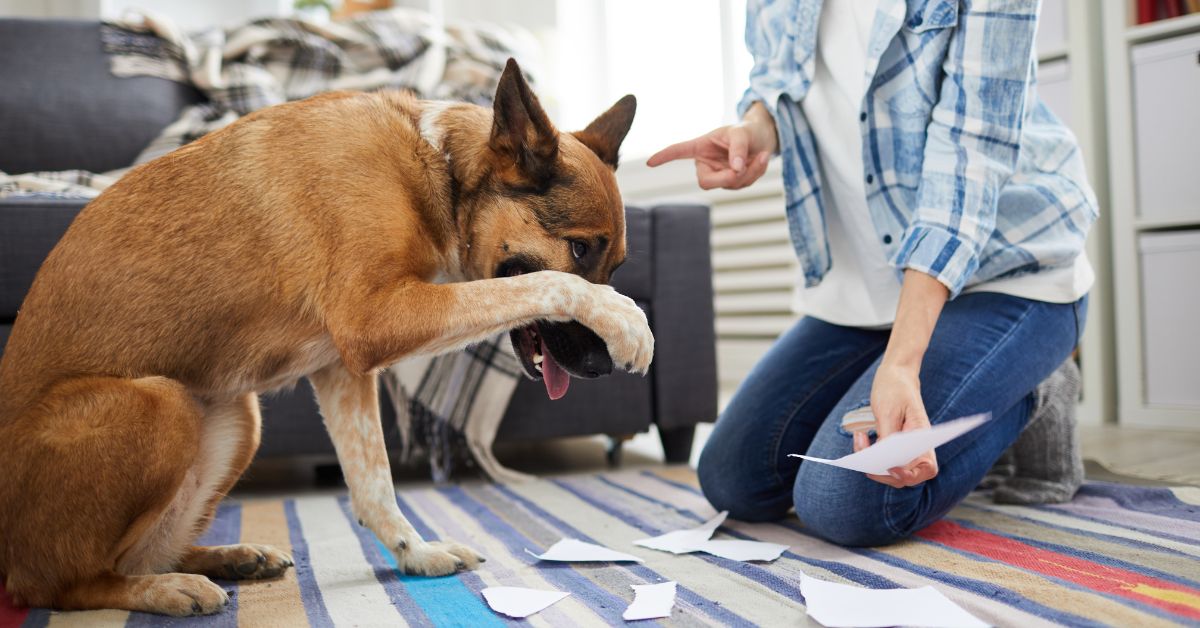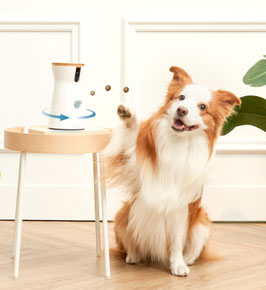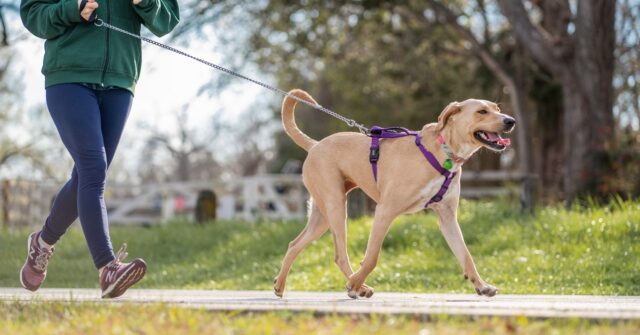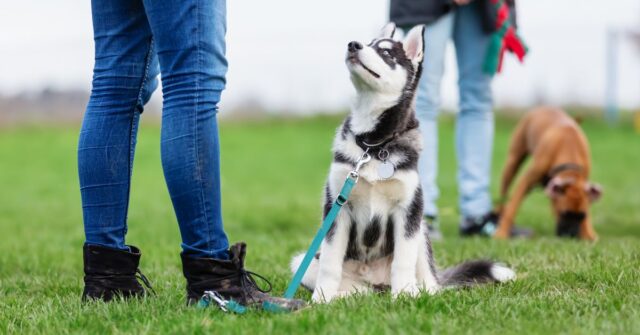Understanding why dogs behave the way they do involves exploring the delicate balance between their natural instincts and the training they receive from humans.
This comprehensive guide delves into both aspects to help you foster a well-behaved and happy canine companion.
Introduction
Dogs are fascinating creatures with complex behaviours that stem from both their genetic makeup and their interactions with humans.
Understanding the science behind these behaviours can help you train your dog more effectively and build a stronger bond.


Understanding the Balance Between Instinct and Training
Dogs have innate behaviours that have been passed down through generations, but they also learn new behaviours through training.
Striking a balance between these instinctual actions and trained responses is crucial for effective dog training.
Importance of This Topic for Dog Owners
Recognizing the differences between instinct and training can prevent frustration for both dogs and their owners.
It allows for more effective communication and a better understanding of your dog’s needs and behaviours.
Instinctual Behaviors in Dogs
Instincts are ingrained behaviours that dogs are born with. These behaviours were developed to help them survive in the wild and can often be seen in domestic dogs today.
Origins of Canine Instincts
Many of the behaviours we see in dogs today have their roots in their wild ancestors.
For example, behaviours like digging and chewing were essential for survival, helping them find food or create a safe place to rest.
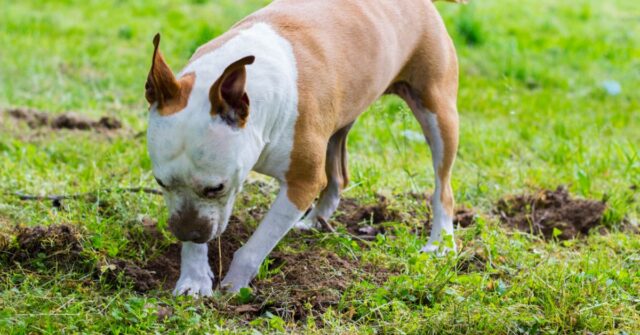

Common Instinctual Behaviors
Understanding common instinctual behaviours can help you manage them more effectively in your pet.
Digging
Digging is a natural behaviour for many dogs. In the wild, they would dig to find food or create a safe, cool place to rest.
Providing a designated digging area or sufficient exercise can help manage this behaviour.
Chewing
Chewing is another instinctual behaviour. It helps keep a dog’s teeth clean and can relieve anxiety. Providing appropriate chew toys can help direct this behaviour away from your shoes and furniture.
Barking and Howling
Barking and howling were used by wild dogs to communicate with each other.
While it can be annoying for owners, it’s important to understand what your dog is trying to communicate and address the underlying cause.


Chasing
Chasing is an instinctual behaviour that stems from a dog’s predatory nature. This behaviour can be managed through training and providing outlets for their energy, like fetch games.
Territorial Marking
Marking territory with urine is a way for dogs to establish their presence. Neutering and consistent training can help reduce this behaviour.
The Role of Training in Modifying Behavior
Training plays a crucial role in shaping a dog’s behaviour. It helps modify unwanted instinctual behaviours and teaches dogs new skills.
The Science Behind Positive Reinforcement
Positive reinforcement involves rewarding desired behaviours to encourage them. This method is supported by scientific research and is effective in promoting long-term behavioural changes.
Key Training Techniques
There are several training techniques that can help you teach your dog new behaviours and manage existing ones.


Basic Commands
Teaching your dog basic commands like sit, stay, and come can help establish control and improve communication. Consistency and patience are key to effective training.
Crate Training
Crate training can help manage behaviours and provide a safe space for your dog. It can also aid in housebreaking and prevent destructive behaviour when you’re not home.
Leash Training
Leash training is essential for safe walks. It teaches your dog to walk calmly by your side and can prevent pulling and lunging.


Recall Training
Recall training, or teaching your dog to come when called, is important for their safety. It ensures they return to you in potentially dangerous situations.
Addressing Behavioral Issues
Behavioral issues can arise from a variety of factors, including fear, anxiety, and frustration. Understanding and addressing these issues is crucial for a harmonious relationship with your dog.
Aggression and Reactivity
Aggression and reactivity can be signs of underlying fear or anxiety. Professional help from a behaviourist can be beneficial in managing these behaviours.
Separation Anxiety
Separation anxiety occurs when a dog becomes distressed when left alone. Gradual desensitization and providing comfort items can help alleviate this anxiety.
Excessive Barking
Excessive barking can be a result of boredom, anxiety, or alertness. Identifying the cause and addressing it through training and enrichment can reduce barking.
Destructive Chewing
Destructive chewing can be managed by providing appropriate chew toys and ensuring your dog gets enough physical and mental exercise.


Integrating Instinct and Training
Combining an understanding of instinctual behaviours with effective training methods can lead to a well-balanced and happy dog.
Working with Natural Behaviors
Working with your dog’s natural behaviours, rather than against them, can make training more effective and enjoyable for both you and your dog.
Enhancing Training with Instinctual Understanding
Understanding your dog’s instincts can help you tailor training methods to their specific needs and behaviours.
Practical Tips for Dog Owners
Practical tips can help dog owners implement training methods and manage instinctual behaviours effectively.


Creating a Balanced Training Routine
A balanced training routine that includes physical exercise, mental stimulation, and consistent training can lead to a well-behaved and content dog.
Tools and Resources for Effective Training
There are many tools and resources available to aid in training, including books, online courses, and professional trainers.
When to Seek Professional Help
If you’re struggling with your dog’s behaviour, seeking help from a professional trainer or behaviourist can provide valuable guidance and support.
Product Recommendations
Recommending useful products can help dog owners find the tools they need to train their dogs effectively.
Top Training Aids
Products like clickers, treat dispensers, and training collars can aid in effective training and behaviour management.
Books and Online Resources
Books and online resources can provide in-depth information and guidance on training and managing dog behaviours.
Conclusion
Understanding the balance between instinct and training is crucial for effective dog behaviour management.
By applying the tips and techniques outlined in this guide, you can foster a positive and rewarding relationship with your dog.
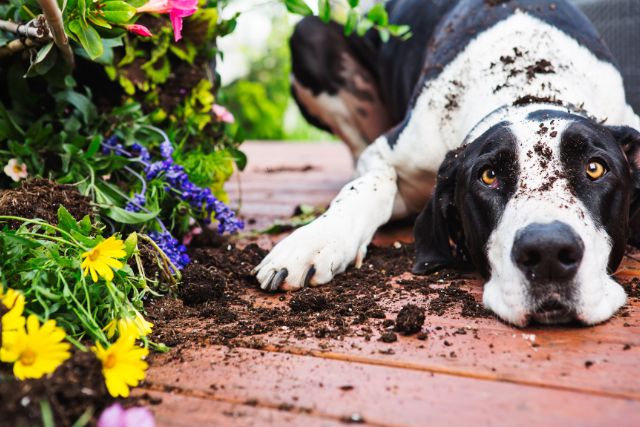

Recap of Key Points
To recap, it’s important to understand your dog’s instinctual behaviours, use positive reinforcement, and seek professional help when needed.
With patience and consistency, you can train your dog to be well-behaved and happy.
Encouragement for Positive, Science-Based Training
Science-based training methods are effective and humane. They can help you build a strong bond with your dog and manage behaviors in a positive way.
Further Reading and Resources
For more information, explore additional resources and consider consulting with a professional trainer or behaviourist for personalized advice.

